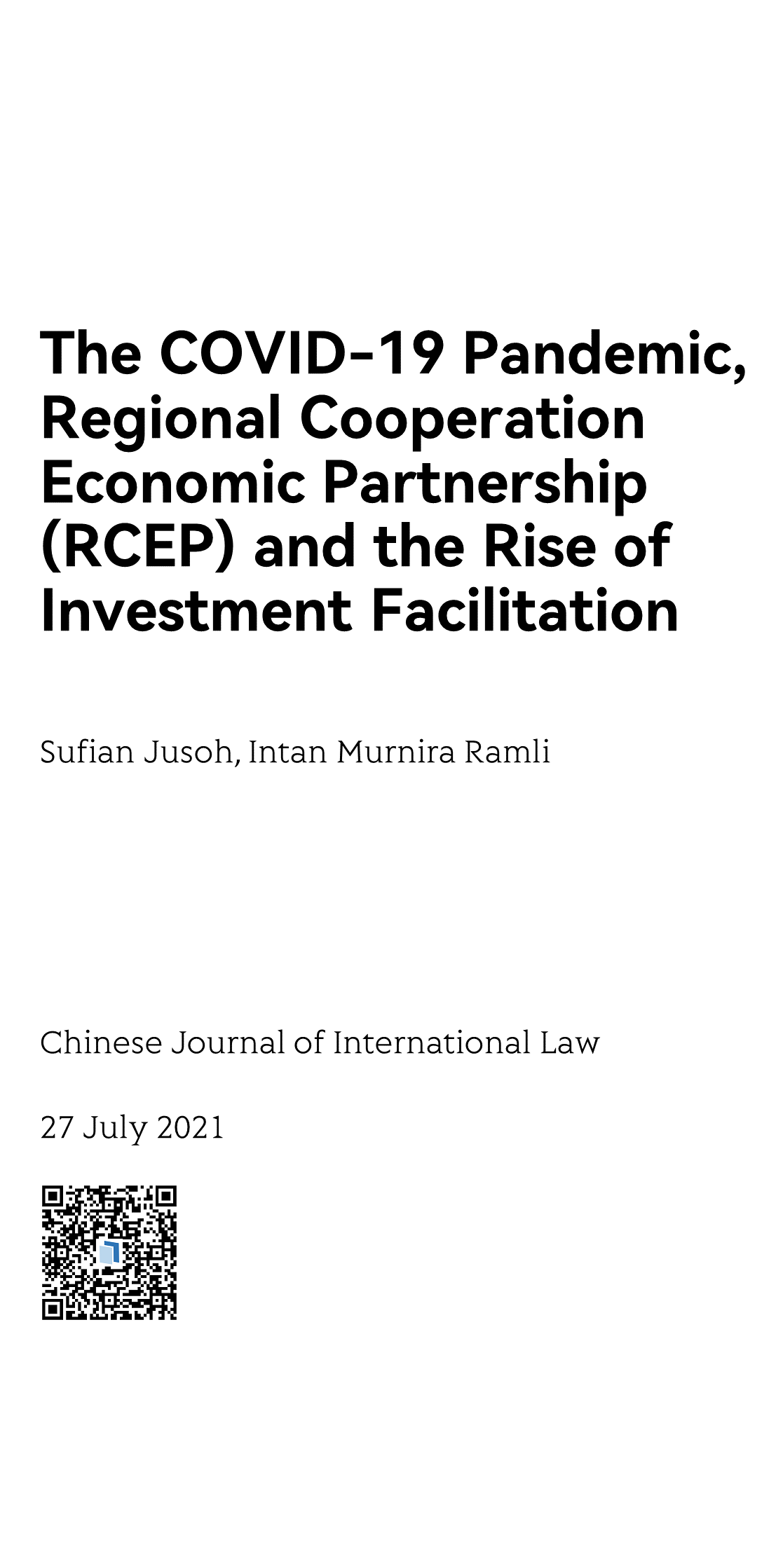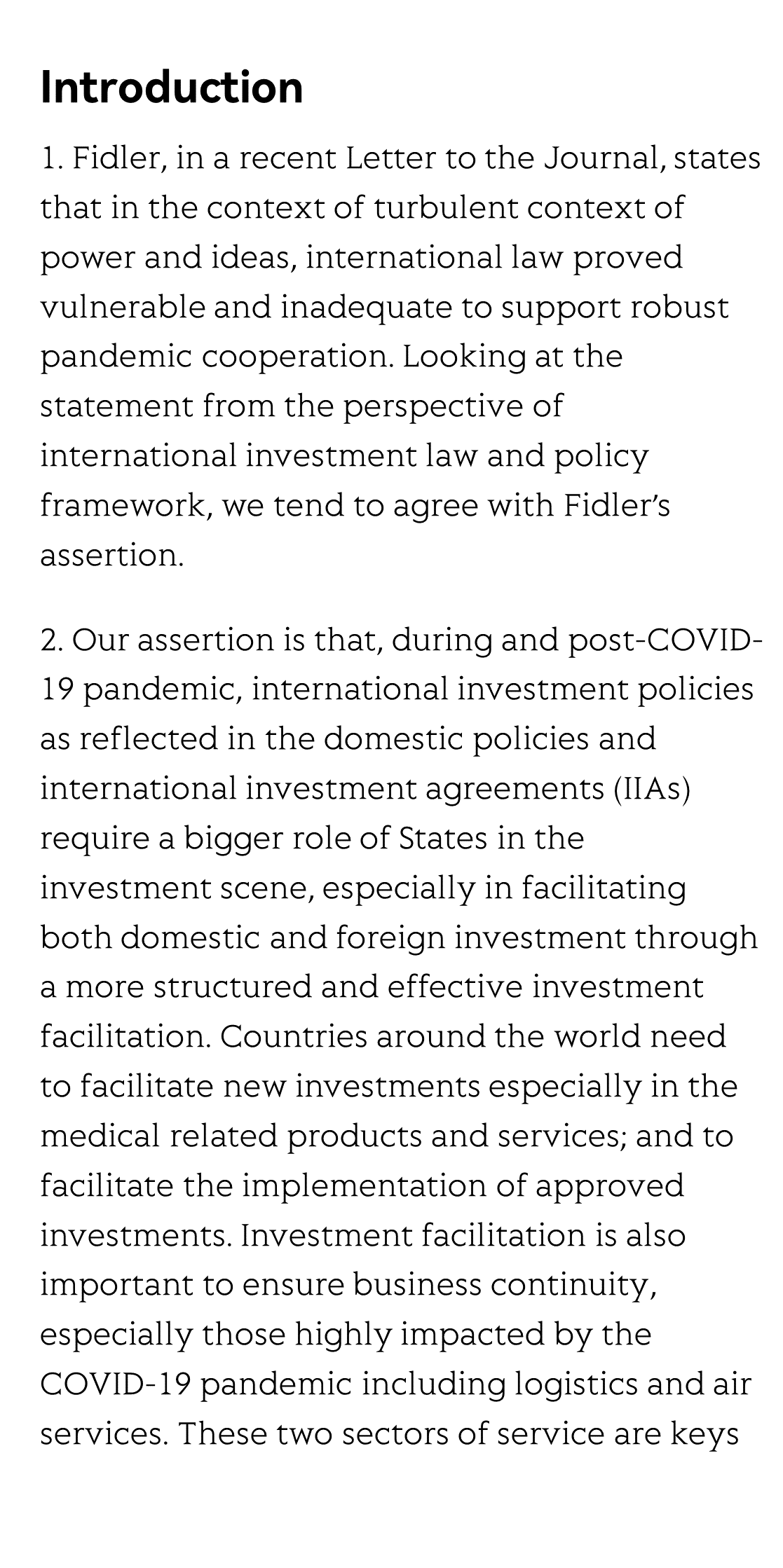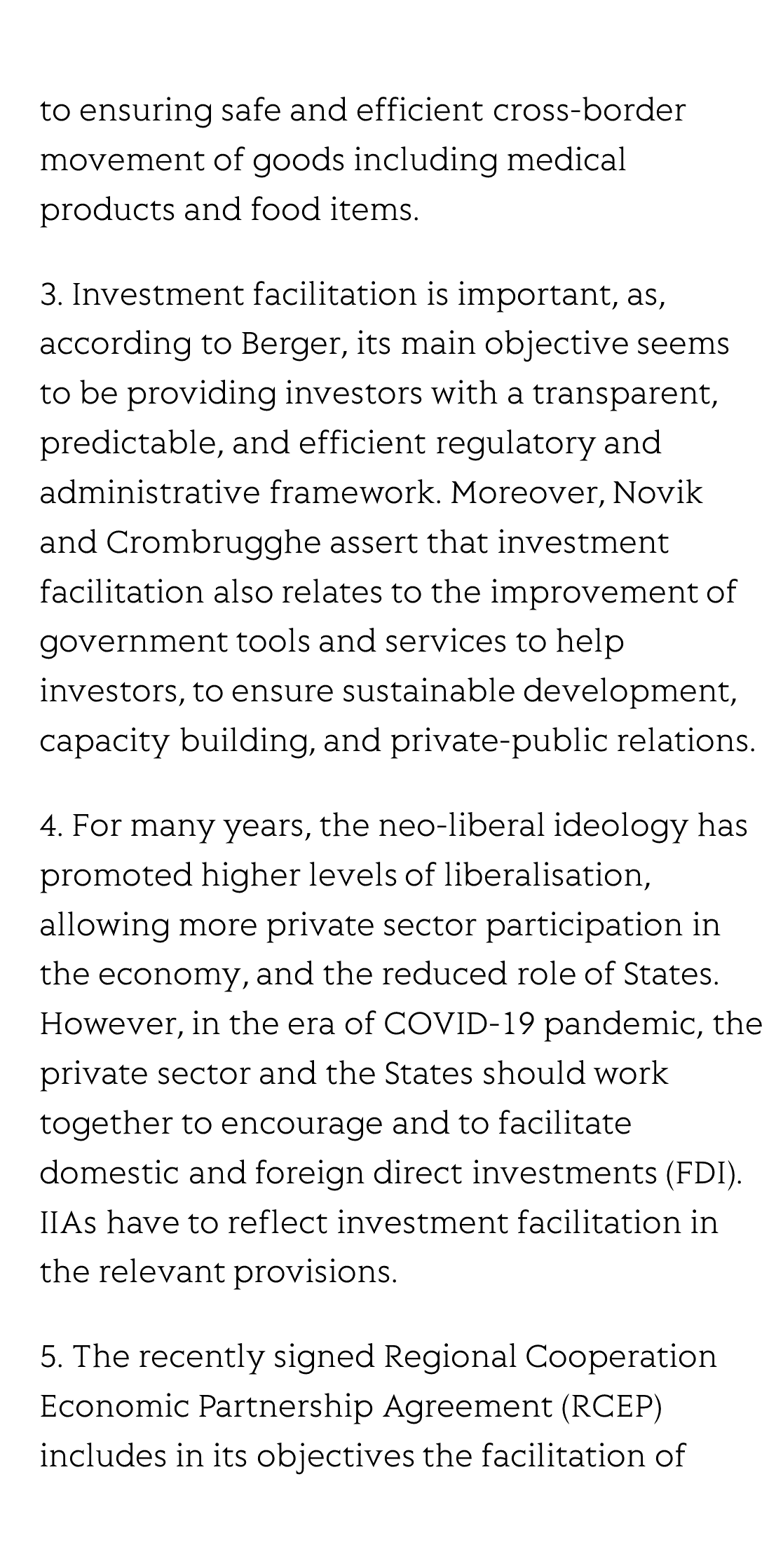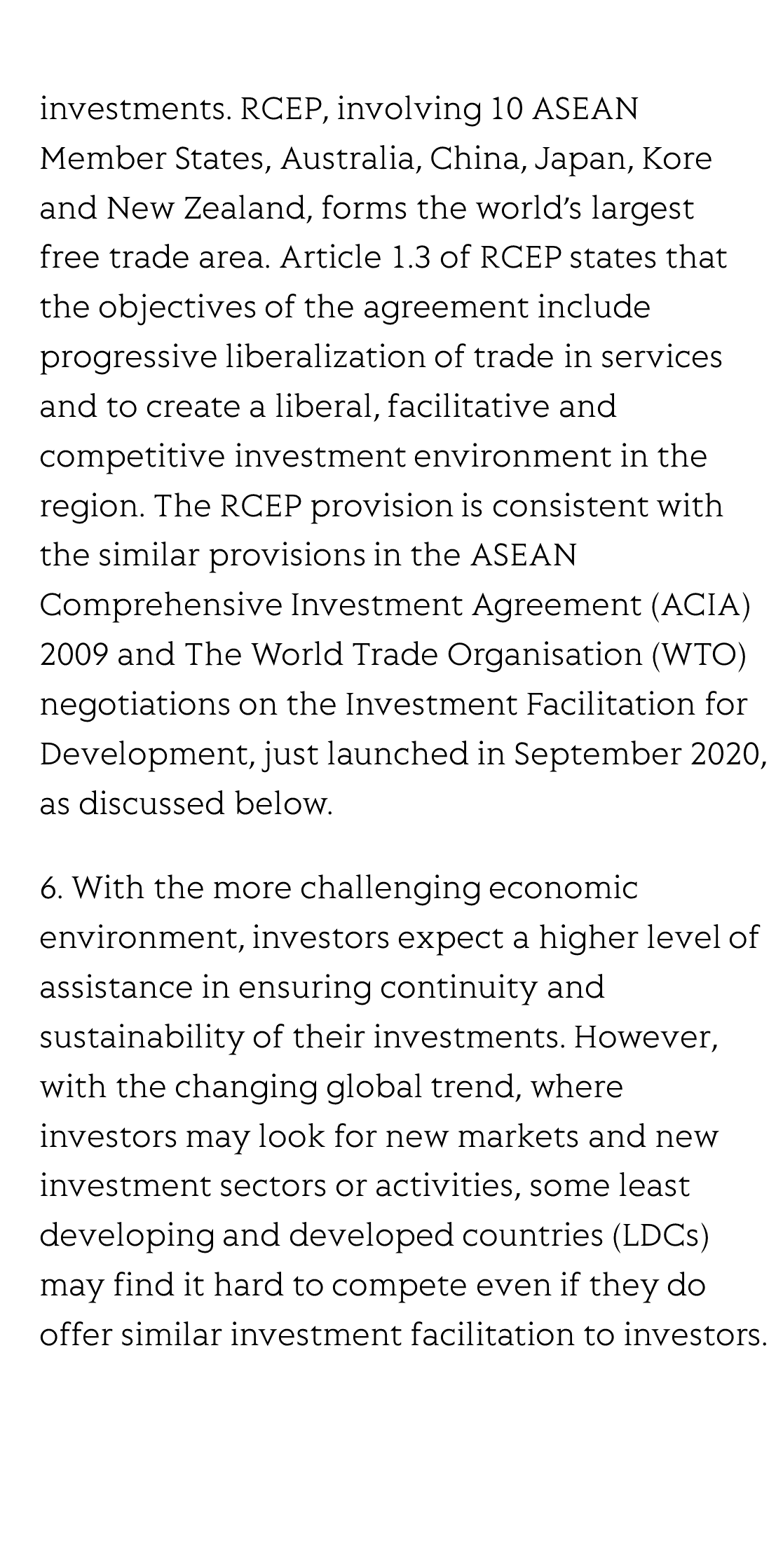(Peer-Reviewed) The COVID-19 Pandemic, Regional Cooperation Economic Partnership (RCEP) and the Rise of Investment Facilitation
Sufian Jusoh ¹, Intan Murnira Ramli ²
¹ Director and Professor of International Trade and Investment, Institute of Malaysian and International Studies (IKMAS), Universiti Kebangsaan Malaysia.
² Policy Fellow, Economic Research Institute for ASEAN and East Asia (ERIA), Jakarta, Indonesia.
Chinese Journal of International Law, 2021-07-27
Introduction
1. Fidler, in a recent Letter to the Journal, states that in the context of turbulent context of power and ideas, international law proved vulnerable and inadequate to support robust pandemic cooperation. Looking at the statement from the perspective of international investment law and policy framework, we tend to agree with Fidler's assertion.
2. Our assertion is that, during and post-COVID-19 pandemic, international investment policies as reflected in the domestic policies and international investment agreements (IIAs) require a bigger role of States in the investment scene, especially in facilitating both domestic and foreign investment through a more structured and effective investment facilitation. Countries around the world need to facilitate new investments especially in the medical related products and services; and to facilitate the implementation of approved investments. Investment facilitation is also important to ensure business continuity, especially those highly impacted by the COVID-19 pandemic including logistics and air services. These two sectors of service are keys to ensuring safe and efficient cross-border movement of goods including medical products and food items.
3. Investment facilitation is important, as, according to Berger, its main objective seems to be providing investors with a transparent, predictable, and efficient regulatory and administrative framework. Moreover, Novik and Crombrugghe assert that investment facilitation also relates to the improvement of government tools and services to help investors, to ensure sustainable development, capacity building, and private-public relations.
4. For many years, the neo-liberal ideology has promoted higher levels of liberalisation, allowing more private sector participation in the economy, and the reduced role of States. However, in the era of COVID-19 pandemic, the private sector and the States should work together to encourage and to facilitate domestic and foreign direct investments (FDI). IIAs have to reflect investment facilitation in the relevant provisions.
5. The recently signed Regional Cooperation Economic Partnership Agreement (RCEP) includes in its objectives the facilitation of investments. RCEP, involving 10 ASEAN Member States, Australia, China, Japan, Kore and New Zealand, forms the world's largest free trade area. Article 1.3 of RCEP states that the objectives of the agreement include progressive liberalization of trade in services and to create a liberal, facilitative and competitive investment environment in the region. The RCEP provision is consistent with the similar provisions in the ASEAN Comprehensive Investment Agreement (ACIA) 2009 and The World Trade Organisation (WTO) negotiations on the Investment Facilitation for Development, just launched in September 2020, as discussed below.
6. With the more challenging economic environment, investors expect a higher level of assistance in ensuring continuity and sustainability of their investments. However, with the changing global trend, where investors may look for new markets and new investment sectors or activities, some least developing and developed countries (LDCs) may find it hard to compete even if they do offer similar investment facilitation to investors.
Separation and identification of mixed signal for distributed acoustic sensor using deep learning
Huaxin Gu, Jingming Zhang, Xingwei Chen, Feihong Yu, Deyu Xu, Shuaiqi Liu, Weihao Lin, Xiaobing Shi, Zixing Huang, Xiongji Yang, Qingchang Hu, Liyang Shao
Opto-Electronic Advances
2025-11-25
A review on optical torques: from engineered light fields to objects
Tao He, Jingyao Zhang, Din Ping Tsai, Junxiao Zhou, Haiyang Huang, Weicheng Yi, Zeyong Wei Yan Zu, Qinghua Song, Zhanshan Wang, Cheng-Wei Qiu, Yuzhi Shi, Xinbin Cheng
Opto-Electronic Science
2025-11-25







